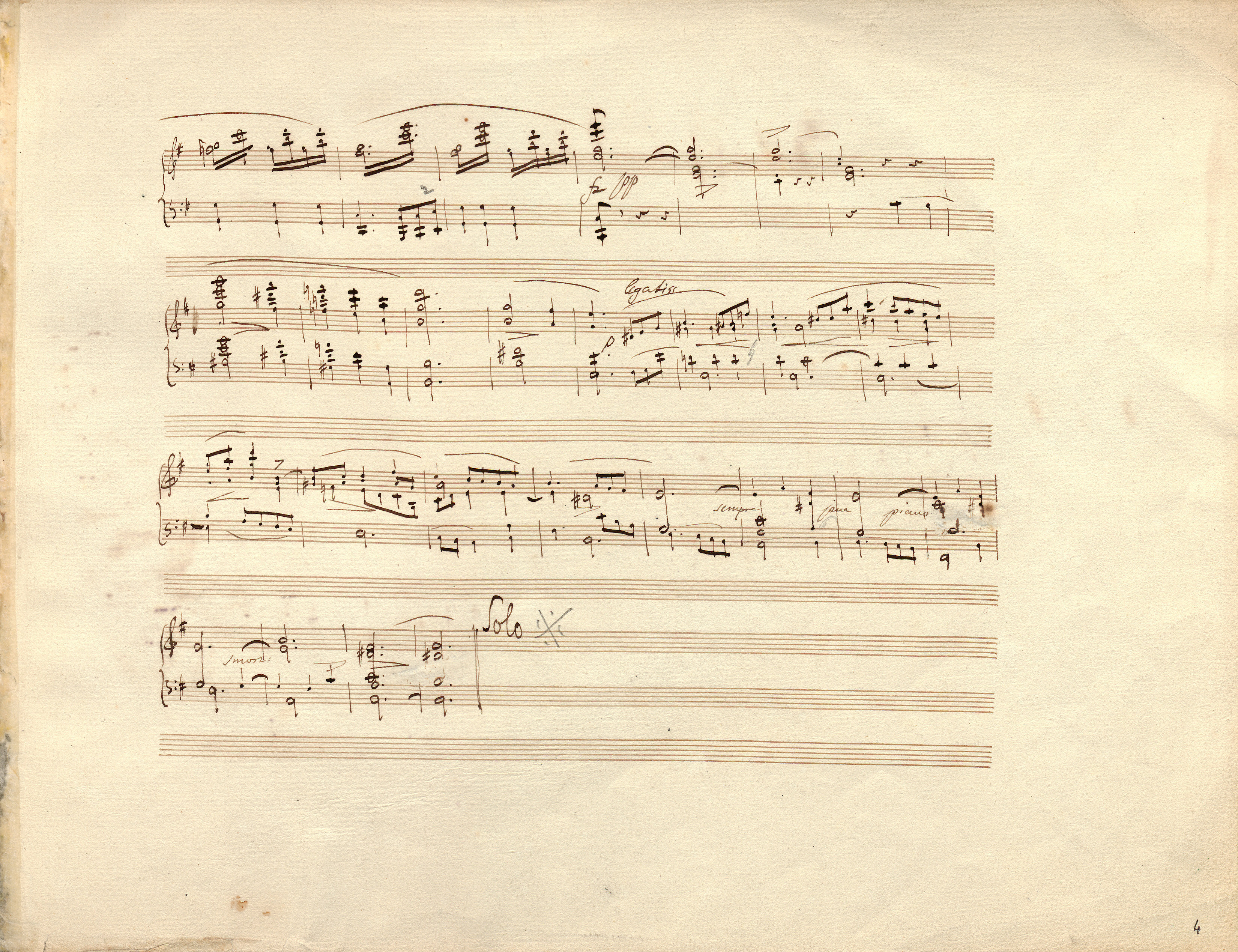



In the entire virtuoso fragment of the development, beginning in this bar, the slurring of FE is inaccurate and incomplete. In the main text, we add and sometimes modify the slurs in accordance with the natural shape of motifs and phrases, confirmed by the source slurs in similar places. We discuss the slurring of the semiquaver figurations in bars 408-415 and 432-439 below; the remaining fragments – see the notes to bars 416-423, 424-425, 426-427, ............
In bars 408-409 and 432-433, the slurs in the R.H. appear in two bars (409 and 432), which allows us to consider the missing slurs in the two remaining bars to be an inaccuracy. A similar reasoning justifies the need for adding slurs in the L.H. in these bars (they appear in 3 out of 4 bars) and the slurs in the R.H. and L.H. in bars 412-413 and 436-437 (3 out of 4 places in each hand). The moment the slurs begin is also problematic – some are running already from the 1st semiquaver, other from the 3rd one (the slur in the L.H. in bar 408, encompassing the last 5 notes only, must be erroneous). The first possibility is supported by the statistics of the beginnings of the slurs – out of 10 places in which there are slurs beginning in one of the described manners, 6 run from the 1st semiquaver and 4 from the 3rd one.
The slurs over the passages in bars 410-411 and analog. are present in the sources only for the second time, i.e. in bars 434-435 and 438-439; in the second pair of bars, they are clearly inaccurate. Taking the slur in bars 434-435 as a model, unquestionable both in terms of sources and music, in the main text, we suggest adding slurs in bars 410-411 and 414-415 and modify the slurring in bars 438-439.
The slurs in the L.H. at the transition between bars 412-413 and 413-414 as well as 436-437 and 437-438 belong to the most problematic ones. These pianistically identical places seem to be provided with consistently varied slurring in FE – in bars 412-413, the slur runs from the last semiquaver and similarly, although inaccurately, in bars 436-437, but in bars 413-414 and 437-438, the beginning of the slur clearly falls on the penultimate note. According to us, however, in this case an inaccurate notation is more likely than an intended differentiation of the slurs; therefore, in the main text, we unify them.
GE1 (→GE2) reproduced the slurs of FE, sometimes very inaccurately (e.g. in bars 412-413). In EE, the inaccuracies are less pronounced, yet slurs were added in a few places (e.g. in bars 408-409, 413-414, 436-437); in other places, minor arbitrary revisions were introduced (e.g. in bars 413-414). The most far-reaching, arbitrary changes were introduced in GE3 – all bar 408 and analog. and 412 and analog. were unified, encompassing the semiquavers on the last two beats of the bar with a slur in each of them and providing the initial pair of semiquavers with staccato dots (it is only the division of the slurs in the L.H. in bars 436-437 that was preserved).
Compare the passage in the sources »
category imprint: Differences between sources; Editorial revisions
issues: EE revisions, GE revisions
notation: Slurs





